Working toward clean water and sanitation for all
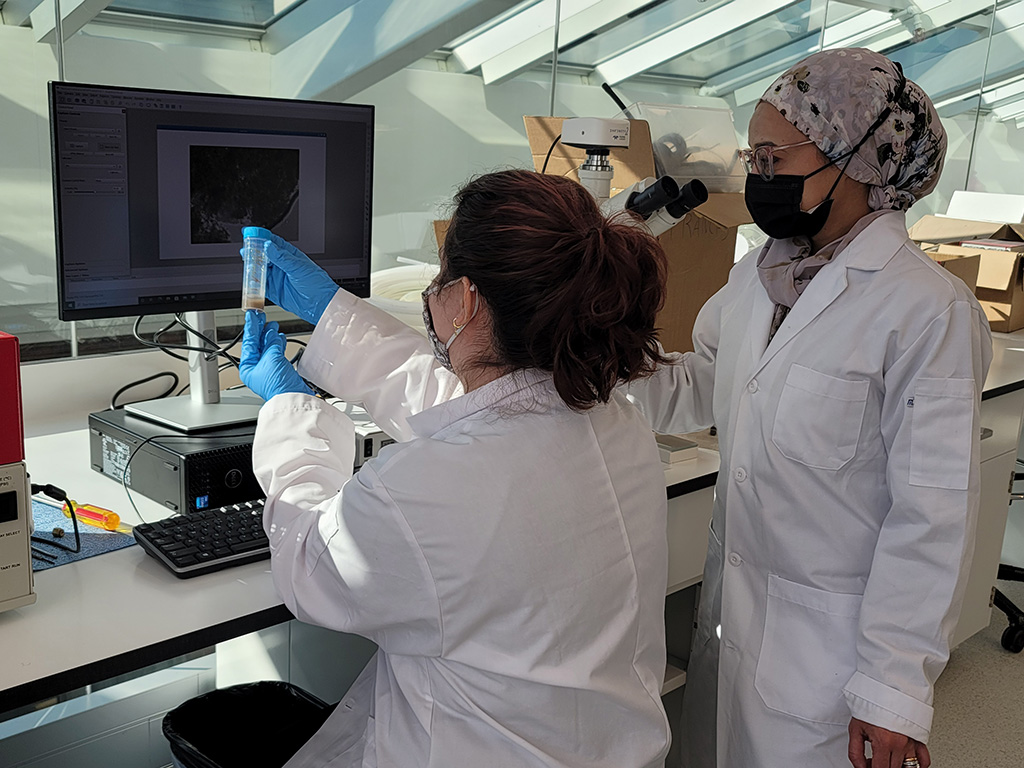
Faculty and graduate students work together to improve wastewater treatment processes and protect aquatic environments
According to the International Groundwater Resources Assessment Centre (IGRAC) (external link) , groundwater is the source of almost half of all drinking water worldwide and an important part of climate change adaptation processes. However, ensuring its quality remains a major challenge. The United Nations (UN) is counting on engineers to help deliver their sixth sustainable development goal (external link, opens in new window) of improving water quality and substantially increasing recycling and safe reuse of water globally through improved wastewater treatment technologies.
Facilitating the transition to a circular economy
Rania Hamza, a professor in the Department of Civil Engineering, collaborates with researchers from multiple disciplines at the Urban Water Research Centre to achieve these goals. Her focus is on the development of emerging biological wastewater treatment technologies using granular biofilms. Hamza believes this collaborative work will lead to groundbreaking advances in the resynthesis and recovery of high-value products from wastewater.
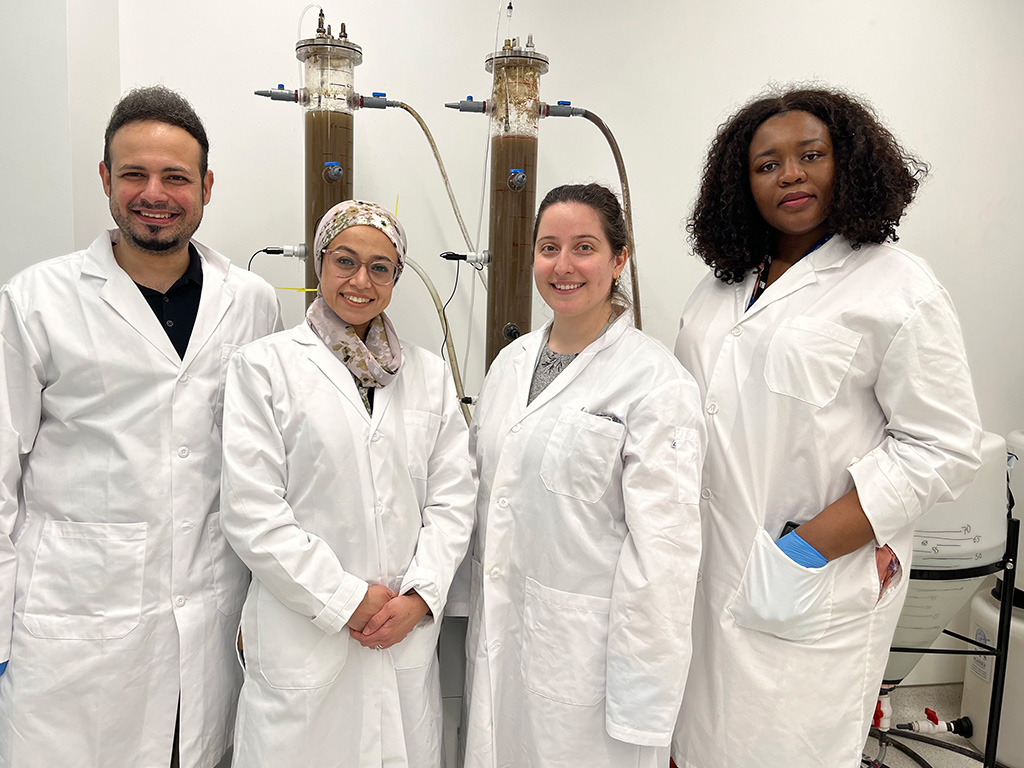
From left to right: Mohammad Elassar, Rania Hamza, Zanina Ilieva, Victoria Onyedibe
“My vision is to transform wastewater treatment plants (WWTPs) into biorefineries that recover not only clean water but also extract valuable materials, thus facilitating the transition to a circular economy,” said Hamza. According to the UN (external link, opens in new window) , “removing biosolids from wastewater and using them for cooking or heating, can help replace fossil fuels and reduce the amount of processing at the wastewater treatment plant.”
Hamza’s work also focuses on reducing and managing a growing list of contaminants of emerging concern (CECs) that are not effectively removed during wastewater treatment. CECs include microplastics, microfibers and per- and poly-fluoroalkyl substances (PFAS) from pharmaceuticals, personal care products, pesticides and industrial chemicals. “CECs are released into surface water and threaten the quality of drinking water with unknown long-term impacts on human health and the environment,” said Hamza.
In line with the goals of the FEAS Equity & Community Inclusion Office, Hamza has intentionally established a diverse research team of highly qualified personnel from several underrepresented groups. FEAS supports Hamza’s research through, among other sources, the Dean’s Research Fund, which enabled the building of the Water Research and Resource Recovery (WR3) facility in the Centre for Urban Innovation (CUI).
Enhancing the quality and treatment of wastewater
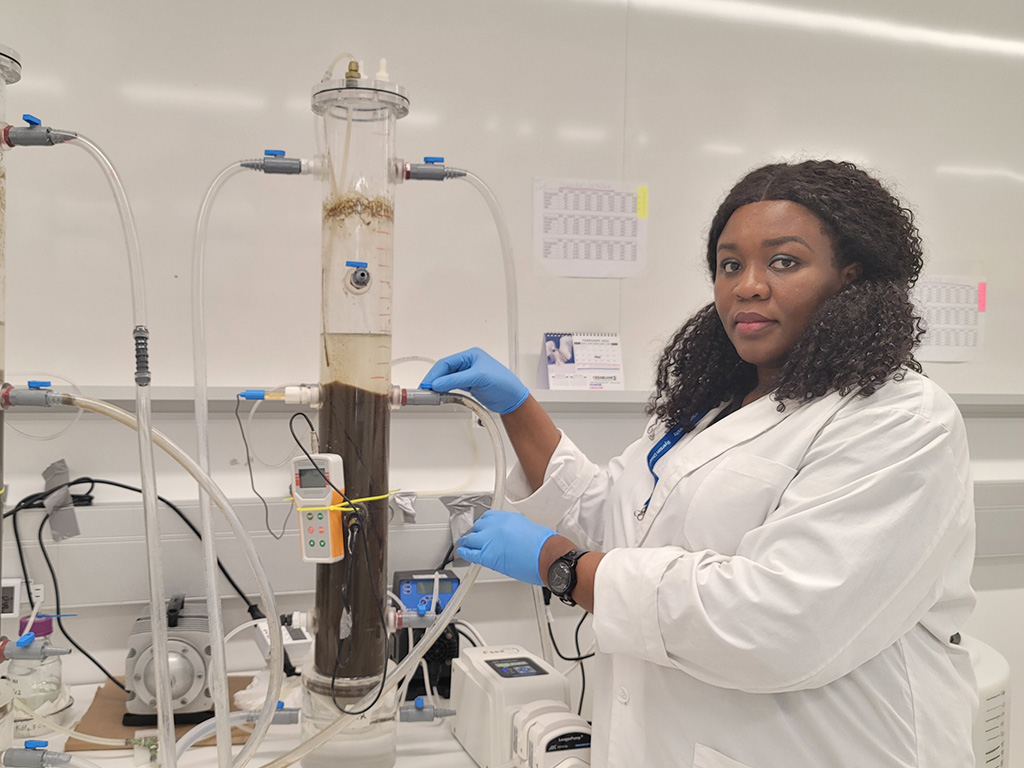
Victoria Onyedibe, a PhD candidate in civil engineering, works to reduce and reuse microfibres in wastewater
Victoria Onyedibe, a PhD candidate in civil engineering, focuses her research on enhancing the removal of microfibres from wastewater and exploring their potential reuse through a relatively new process called Aerobic Granular Sludge. “There is currently a knowledge gap regarding the interaction between microfibers and Aerobic Granular Sludge, which I aim to fill,” said Onyedibe.
Microfibres are the most commonly occurring microplastics in wastewater treatment plants (WWTPs). They can reduce the efficacy of treatment processes, stress infrastructure and lead to long-term environmental and health issues. By removing microfibres, Aerobic Granular Sludge has the potential to lower the carbon footprint of WWTPs. Reusing them may enhance the treatment of wastewater effluents to improve the quality of water released into drinking water sources.
“I am originally from a developing country without access to clean water,” said Onyedibe, “so developing methods to improve the condition of wastewater is something I am personally passionate about.” Onyedibe has been awarded a Queen Elizabeth II graduate scholarship in Science and Technology (QEII-GSST) and an Honourable George W. Vari Friendship Award.
Increasing the capacity of wastewater treatment plants
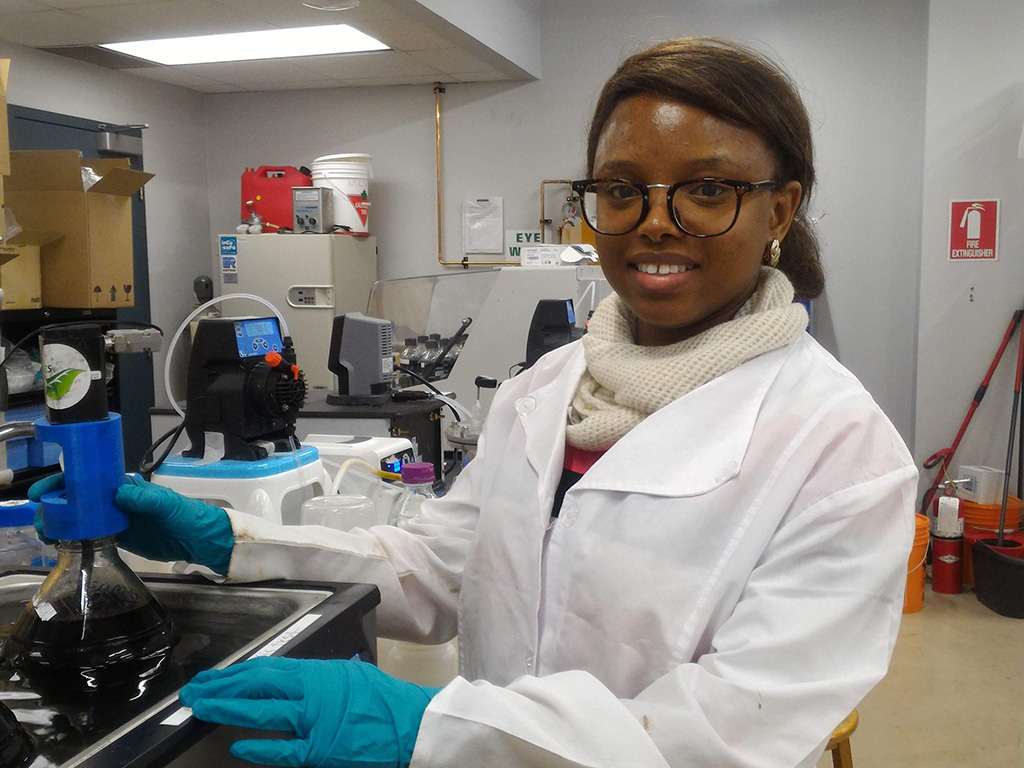
Frances Okoye, a PhD candidate in civil engineering, conducts lab research to improve the performance of WWTPs
Frances Okoye, a PhD candidate in civil engineering, works on managing levels of wastewater treatment at WWTPs, while increasing energy generation, reducing management costs and recovering valuable resources before treated water is released. To achieve these goals, Okoye uses free nitrous acid, a chemical produced from wastewater, to pre-degrade sludge and make anaerobic digestion more efficient.
Okoye can also recover valuable resources like volatile fatty acids and ammonia for reuse in many industries through vacuum evaporation. Separating nutrients such as nitrogen and phosphorous from sludge also reduces the spatial requirements and management cost of sludge treatment. “Increasing the capacity of WRRFs without a proportional increase in capital expenditure encourages technology adoption in smaller facilities.”
Okoye’s research has been supported through a graduate scholarship, FEAS graduate student funding, an Honorable George W. Vari Friendship Award and an IESO Student Assistantship Award through the Centre for Urban Energy (CUE).
Improving wastewater treatment processes
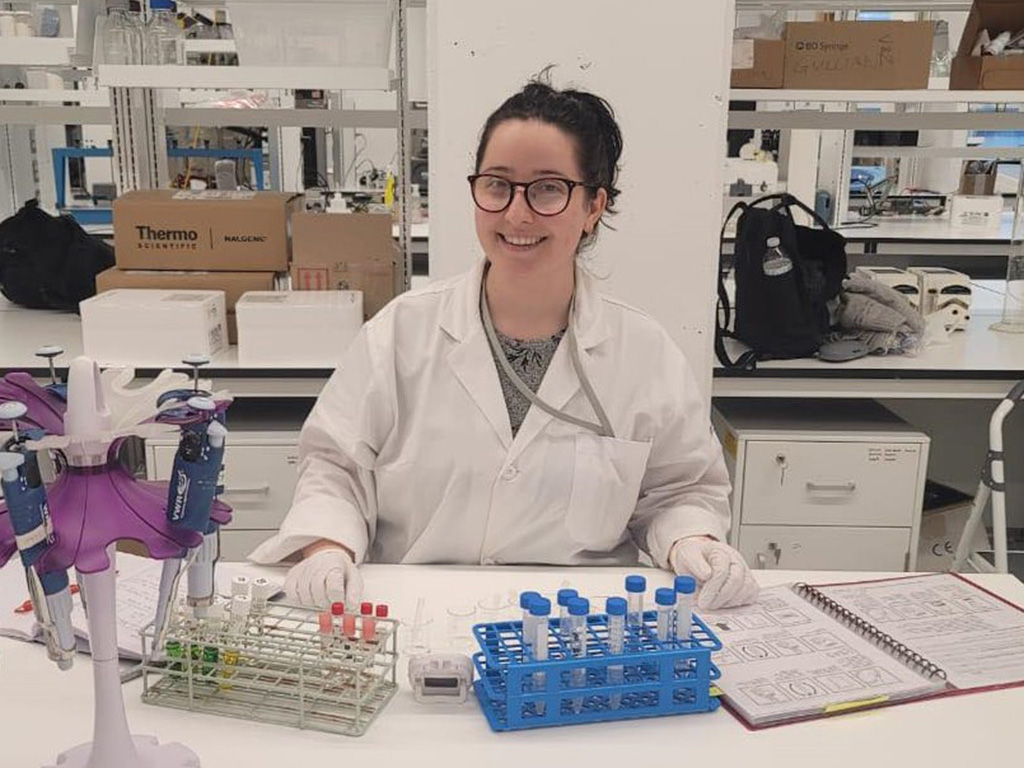
Zanina Ilieva, a PhD candidate in civil engineering, focuses her lab research on improving wastewater treatment technologies
Zanina Ilieva, a PhD candidate in civil engineering, conducts research that aims to improve wastewater treatment processes and ultimately improve the quality of the discharged water. She focuses on targeting the sustainable removal of PFAS that otherwise end up in the environment.
“PFAS are chemicals used in oil and water-resistant coatings in numerous home and industrial products,” said Ilieva. Examples of everyday products containing PFAS include Goretex clothes, Teflon pans, fire-fighting foams and take-out containers, among many others. As Ilieva’s mentor, Hamza has given her enormous support. “She is someone that encourages and guides me throughout my degree,” said Ilieva. Ilieva also participates in FEAS workshops that enrich her knowledge and experience.